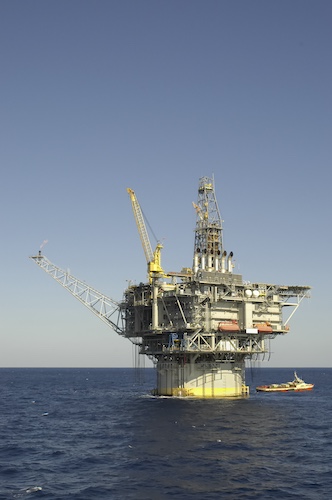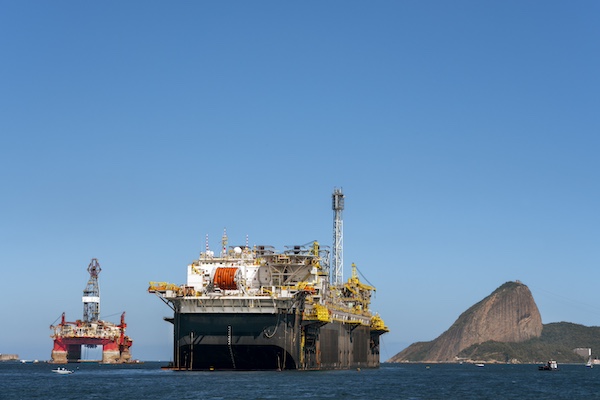Which Laws Apply? The role of vessel, contract, and worker status in determining relevant legal regimes
The growth and rapid evolution of the offshore wind industry and the introduction of new, US Jones Act-compliant offshore wind vessels mean that wind operations may involve the use of Jones Act seamen, maritime employees, and other non-maritime employees. Such workers variously fall under the purview of the Jones Act, the Longshore and Harbor Workers’ Compensation Act (LHWCA), and other laws that determine their rights and remedies in cases of injury or accident.
Similarly, the classification of various offshore structures as vessels or non-vessels will determine which law applies to the contracts, indemnity obligations, and insurance agreements that govern their operations. Such classifications have significant impacts on the assessment and management of risk, and the types and scope of insurance coverage necessary to limit potential exposure.
This article will help maritime owners and operators better understand how these classifications are made, and plan accordingly.
 When a vessel is not a “vessel”
When a vessel is not a “vessel”
In determining the laws that apply to offshore disputes, situs (the place to which a property belongs, for legal and tax purposes) and status (official classification) matter. Such distinctions, however, are not always straightforward. In its decision in Lozman v. City of Riviera Beach, for example, the US Supreme Court determined that a houseboat not involved in maritime commerce was not a vessel.
Similarly, the US Court of Appeals for the Fifth Circuit has, on multiple occasions, held that moored but floating work platforms — including floating production units, tension-leg platforms, and spar units — are not vessels for Jones Act or other purposes.
Conversely, other offshore floating construction and drilling units which are jacked up while in use but are regularly moved to other locations — such as lift boats, mobile offshore drilling units, feeder support vessels, and wind-turbine installation vessels — may be considered vessels engaged in maritime commerce.
Vessel status affects contract status
The status of an offshore structure or watercraft as a “vessel in navigation” will determine the laws that apply to the contracts governing its operations. In the Gulf of Mexico, in particular, disputes can be subject to several bodies of law: maritime law, federal law applied under the Outer Continental Shelf Lands Act (OCSLA), and state law. State law may apply either as surrogate federal law under the OCSLA, or because the platform facility is operating within state territorial waters.
In general, when a contract contemplates the substantial use of a “vessel in navigation,” it will be considered a maritime contract and, therefore, subject to substantive maritime law, which is uniform throughout the country. However, if the contract does not contemplate a vessel playing a substantial role in the completion of the work, the contract will be subject to state law (many states have anti-indemnity statutes that void choice of law provisions, while maritime law allows choice of law).
This distinction can make an important difference when it comes to contractual clauses for indemnity and, in turn, relevant insurance obligations. For example, general maritime law and state law can differ greatly in whether or not “knock-for-knock” indemnity is valid and enforceable and how insurance obligations may be viewed.
Vessel status also determines worker classification
Under the Jones Act, seamen who are injured in the course and scope of their employment have the right to sue their employer for personal injury. Whether a worker qualifies as a Jones Act seaman is subject to a two-part test:
- First, the worker must contribute to the function of a vessel.
- Second, the worker must have a connection to a vessel (or a fleet of vessels) that is substantial in both its nature and duration.
Under this two-part test, the captain and crew of an offshore supply or construction vessel engaged in its navigation would typically qualify as Jones Act seamen. On the other hand, an engineer or temporary service hand aboard a fixed offshore wind installation may not be considered a seaman, because he has no connection to a vessel in navigation.
In the middle ground are a host of examples that are more complicated and fact intensive, such as the status of a contract or service company worker assigned to operate equipment on a barge or work platform. In these gray-area cases, determining seaman status will require a highly fact-sensitive inquiry that draws on the totality of the circumstances and the worker’s ultimate connection to a vessel in navigation.

Bringing it all together
A Jones Act employer owes an absolute duty to provide maintenance and cure to a seaman who is injured or becomes ill in the service of the vessel, and such claims arise regardless of fault. In the case of injury, a Jones Act seaman can bring the typical tripartite causes of action against the employer: (1) maintenance and cure, (2) unseaworthiness, and (3) Jones Act negligence. The seaman may also bring general maritime law claims against third-party non-employers.
If an employee does not qualify as a Jones Act seaman, the employee could potentially fall under the Longshore and Harbor Workers Compensation Act (LHWCA). If a worker’s job is not performed on the Outer Continental Shelf (OCS), which invokes the LHWCA under OCSLA to qualify as an LHWCA employee, a worker must be engaged in maritime employment and be injured upon the navigable waters of the United States. For employees that meet both requirements, the LHWCA is the worker’s exclusive remedy against the employer; it provides for payment of medical, surgical, and other treatment, as well as disability benefits, including temporary or permanent disability. If a worker involved in exploration and production is injured on a platform in state waters, but not engaged in an LHWCA activity, then state compensation laws may apply.
As noted, the OCSLA extends the benefits conferred by the LHWCA to employees working on the OCS in the exploration and development of natural resources. In 2021, Congress amended the OCSLA to include under its jurisdiction installations (e.g., offshore wind farms and other renewable energy installations) that produce “non-mineral energy resources.” Some have questioned whether the amendments to the OSCLA extends LHWCA benefits to workers on wind facilities, since “employee” is narrowly defined under OSCLA to focus on workers exploring and developing natural resources from the subsoil and seabed of the OCS. Others argue that the extension of OCSLA was meant to include workers involved in the wind industry on the OCS.
If an employee does not qualify as a seaman or other maritime worker, such employee would be covered by the applicable state workers’ compensation laws. Although a non-maritime employee would be unable to pursue a cause of action against his or her employer, if the employee becomes injured while aboard a third party’s vessel, the employee could file suit for vessel negligence.
Situs and status are important concepts in the offshore industries, and the classification of offshore structures is directly related to the rights of offshore workers with respect to litigation in the case of injury, illness, or accident, as well as to a broad range of contractual indemnities, insurance coverage, and other issues. Participants in the offshore wind industry should remain mindful of vessel and employment classifications, maritime law, OCSLA and state laws when considering project development, insurance needs, indemnity obligations, and risk management.
 Grady Hurley is a partner in and co-leader of the maritime litigation, arbitration, and dispute resolution team and co-chair of the Energy, Environmental & Natural Resources Industry Team for Jones Walker. Since 1979, he has focused on maritime, oilfield, and energy litigation.
Grady Hurley is a partner in and co-leader of the maritime litigation, arbitration, and dispute resolution team and co-chair of the Energy, Environmental & Natural Resources Industry Team for Jones Walker. Since 1979, he has focused on maritime, oilfield, and energy litigation.
 Sara Kuebel is an associate in the Jones Walker Maritime Practice Group. Sara advises clients in a broad range of disputes, with a concentration in maritime litigation, including allisions and collisions and claims under General Maritime Law, the Jones Act, the Longshore and Harbor Workers’ Compensation Act, and the Outer Continental Shelf Lands Act. Jones Walker LLP has offices in Alabama, Arizona, the District of Columbia, Florida, Georgia, Louisiana, Mississippi, New York, and Texas, serving local, regional, national, and international business interests.
Sara Kuebel is an associate in the Jones Walker Maritime Practice Group. Sara advises clients in a broad range of disputes, with a concentration in maritime litigation, including allisions and collisions and claims under General Maritime Law, the Jones Act, the Longshore and Harbor Workers’ Compensation Act, and the Outer Continental Shelf Lands Act. Jones Walker LLP has offices in Alabama, Arizona, the District of Columbia, Florida, Georgia, Louisiana, Mississippi, New York, and Texas, serving local, regional, national, and international business interests.
Jones Walker LLP | www.joneswalker.com
Author: Grady Hurley and Sara Kuebel
Volume: 2024 March/April








